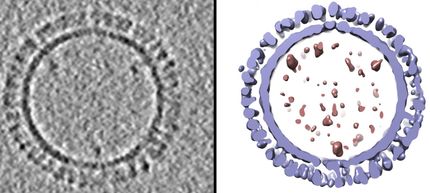Cytos Biotechnology awarded US patent for Immunodrugs(TM) to treat drug of abuse addiction
Advertisement
The US Patent and Trademark Office (USPTO) has issued US patent number 6,932,971, which relates to and covers Cytos Biotechnology's phase II Immunodrug(TM) candidate CYT002-NicQb to treat nicotine addiction. The granted claims cover hapten-carrier conjugates comprised of virus-like particles of RNA bacteriophages (including Qb) and 22 different drugs of abuse including nicotine, cocaine and heroin. It further relates to the use of such hapten-carrier conjugates for induction of an immune response (including the production of antibodies) against the specified drugs of abuse by immunization via different application routes. The patent lasts until September 26, 2023.
CYT002-NicQb is a therapeutic vaccine currently in phase II development for the treatment of nicotine addiction. Vaccination with CYT002-NicQb has been shown to induce high levels of nicotinespecific antibodies that bind nicotine in the blood. As the complex of nicotine attached to an antibody is too large to pass the blood-brain-barrier, nicotine uptake into the brain and the subsequent stimulation of nicotine-perceptive neurons in the brain is believed to be significantly reduced or even prevented. The phase II results obtained in May this year clearly suggested that high antibody levels against nicotine are effective in helping people quit smoking.
Other news from the department research and development
Most read news
More news from our other portals
See the theme worlds for related content
Topic world Antibodies
Antibodies are specialized molecules of our immune system that can specifically recognize and neutralize pathogens or foreign substances. Antibody research in biotech and pharma has recognized this natural defense potential and is working intensively to make it therapeutically useful. From monoclonal antibodies used against cancer or autoimmune diseases to antibody-drug conjugates that specifically transport drugs to disease cells - the possibilities are enormous

Topic world Antibodies
Antibodies are specialized molecules of our immune system that can specifically recognize and neutralize pathogens or foreign substances. Antibody research in biotech and pharma has recognized this natural defense potential and is working intensively to make it therapeutically useful. From monoclonal antibodies used against cancer or autoimmune diseases to antibody-drug conjugates that specifically transport drugs to disease cells - the possibilities are enormous



























































